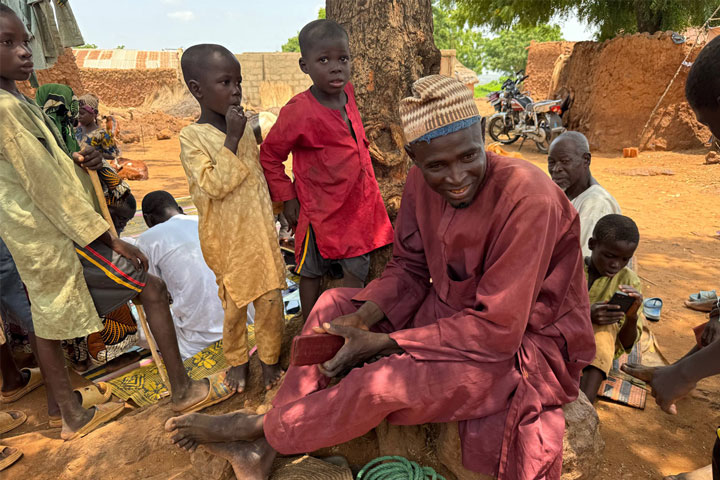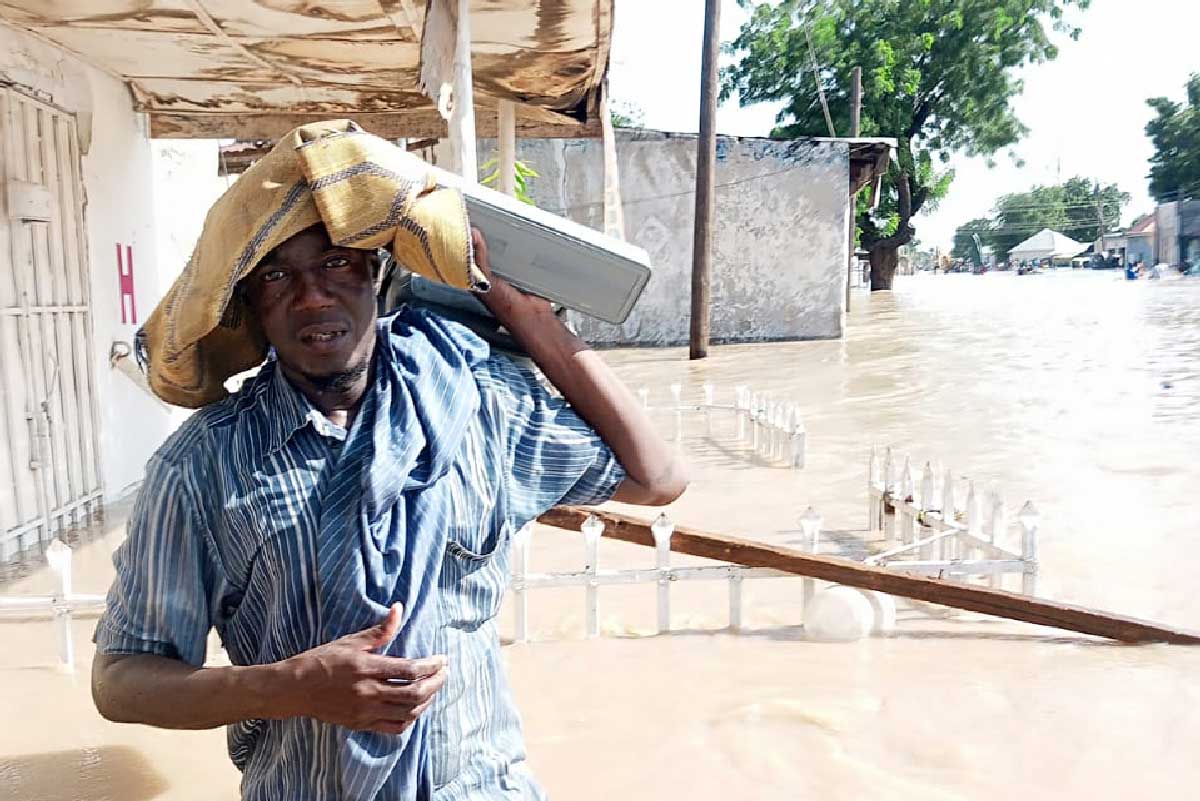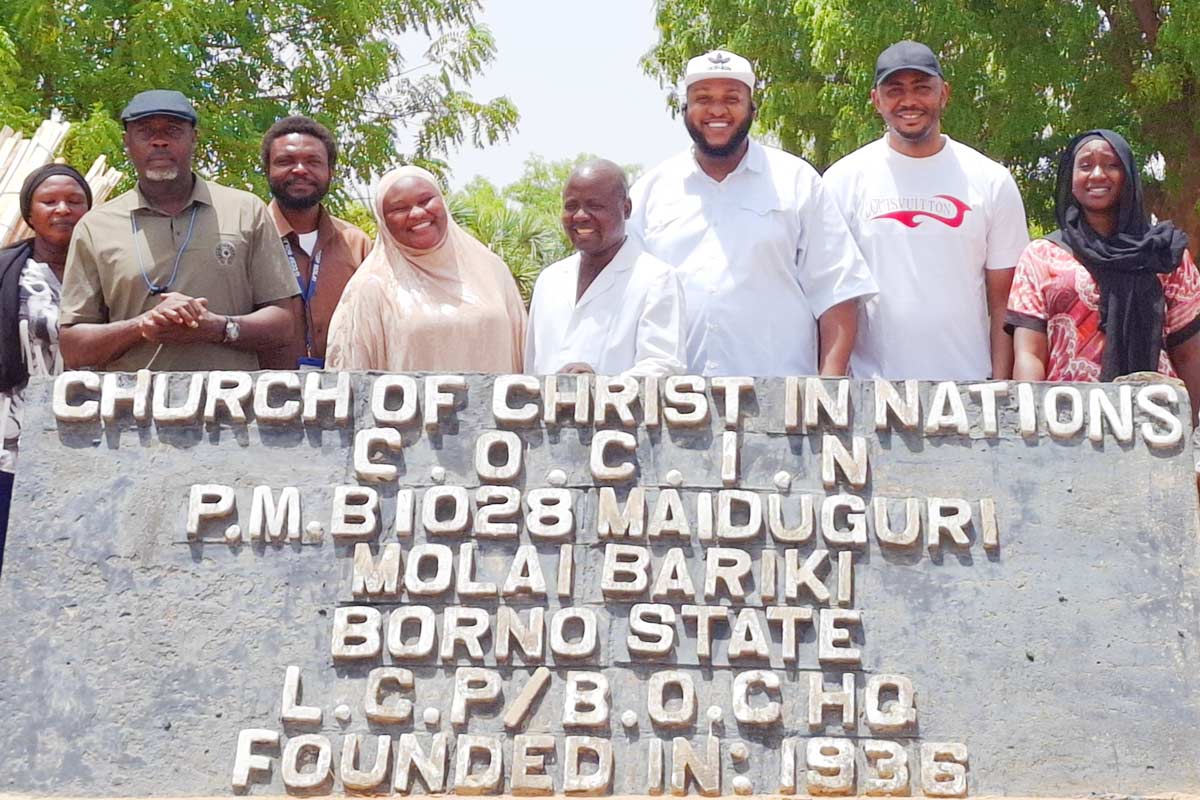From 'No' to eight 'Yeses': how a community changed its mind about vaccines
In a conflict-prone part of Nigeria’s Plateau State, an entire community had rejected immunisation. But when one trusted friend told a worried mother that vaccines would protect her child, a chain reaction began.
- 13 October 2025
- 5 min read
- by Christian Health Association of Nigeria (CHAN)
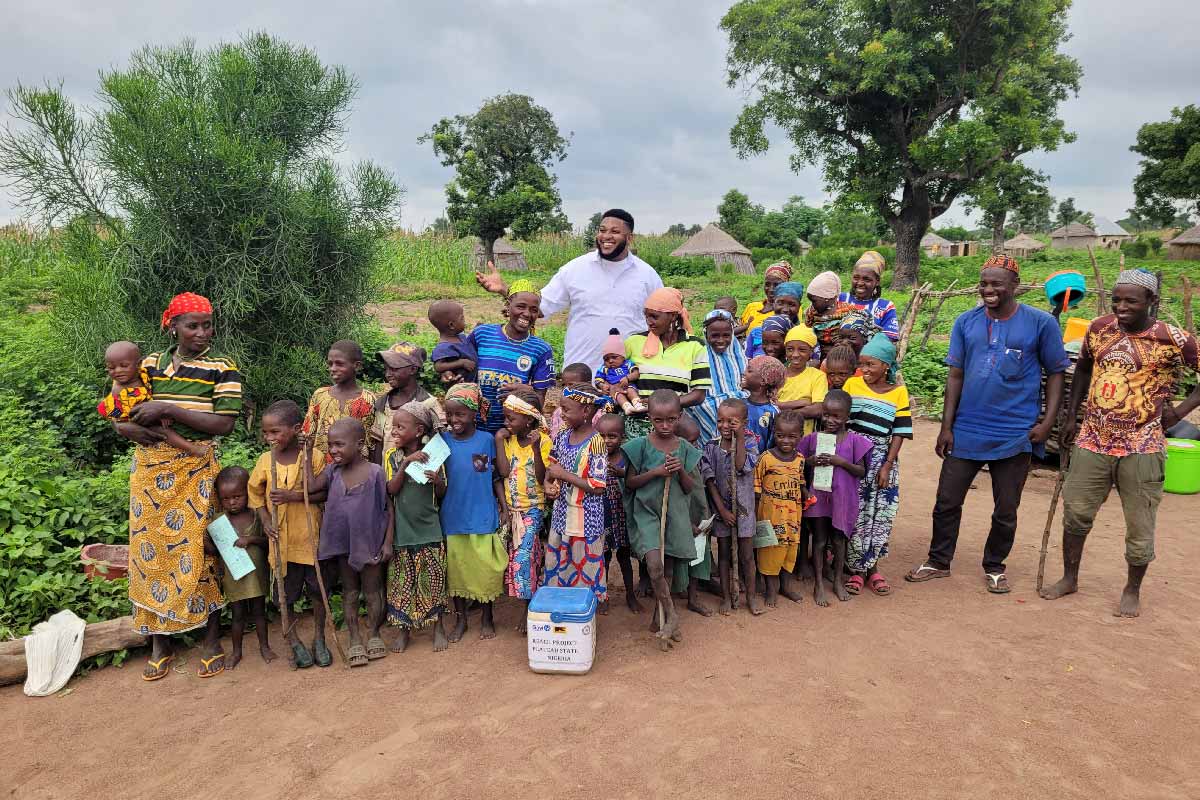
A community where “no” was the answer
In Rugan Bale, the answer visiting vaccinators heard had almost always been “No.”
The dusty path into the settlement passed grazing cattle and clusters of round mud homes with thatched roofs. On the surface, it was peaceful, but behind the stillness lay years of armed violence, fear, swirling rumours.
In this part of the Shendam local government area in Nigeria’s Plateau State, violence can erupt without warning. Armed attacks have displaced families in nearby villages, and roads that seem safe in the morning can be dangerous by evening.
For many local parents, missing vaccination days has not been an act of neglect, but the collateral damage of survival.
Change does not usually come in a single sweep. It grows through patience, listening, and building trust until one “yes” becomes another, and then another.
Mistrust has added another barrier to protection. For years, health teams visiting Rugan Bale have been met with polite but firm refusals. Stories that vaccines make children sick have travelled quickly from house to house, leaving many unprotected from preventable diseases.
CHAN’s mission in Plateau State
The Christian Health Association of Nigeria (CHAN) – which is implementing the Nigeria component of the Gavi-funded and International Rescue Committee (IRC)-led Reaching Every Child in Humanitarian Settings (REACH) – was determined to change that record.
As of September 2025, CHAN teams had administered a total of 697,665 doses of routine immunisation vaccines to children across Plateau State. As a consequence, 26,877 children had been immunised with the second dose of the measles-containing vaccine. In Shendam alone, coverage has risen to levels once thought impossible.
Yet these numbers only tally the outcome, not the transformation underlying it. The deepest change happens when mistrust turns into belief, one parent, and one conversation at a time.
Azumi: from hesitancy to confidence
One of the first people the CHAN team met in Rugan Bale was Azumi Dabulde, a Fulani mother of five children, and a vaccine champion who had once been a staunch refuser.
Dabulde and her family had migrated from Nasarawa State ten years earlier, looking for greener pastures for their livestock. She earns a living selling unpasteurised milk and farm produce.
She told her story. For many years, she’d been convinced by rumours that vaccines could harm children. Her first child, now 20 years old, was never vaccinated. Her youngest, a 10-month-old baby, was on the same path, until her thinking changed.
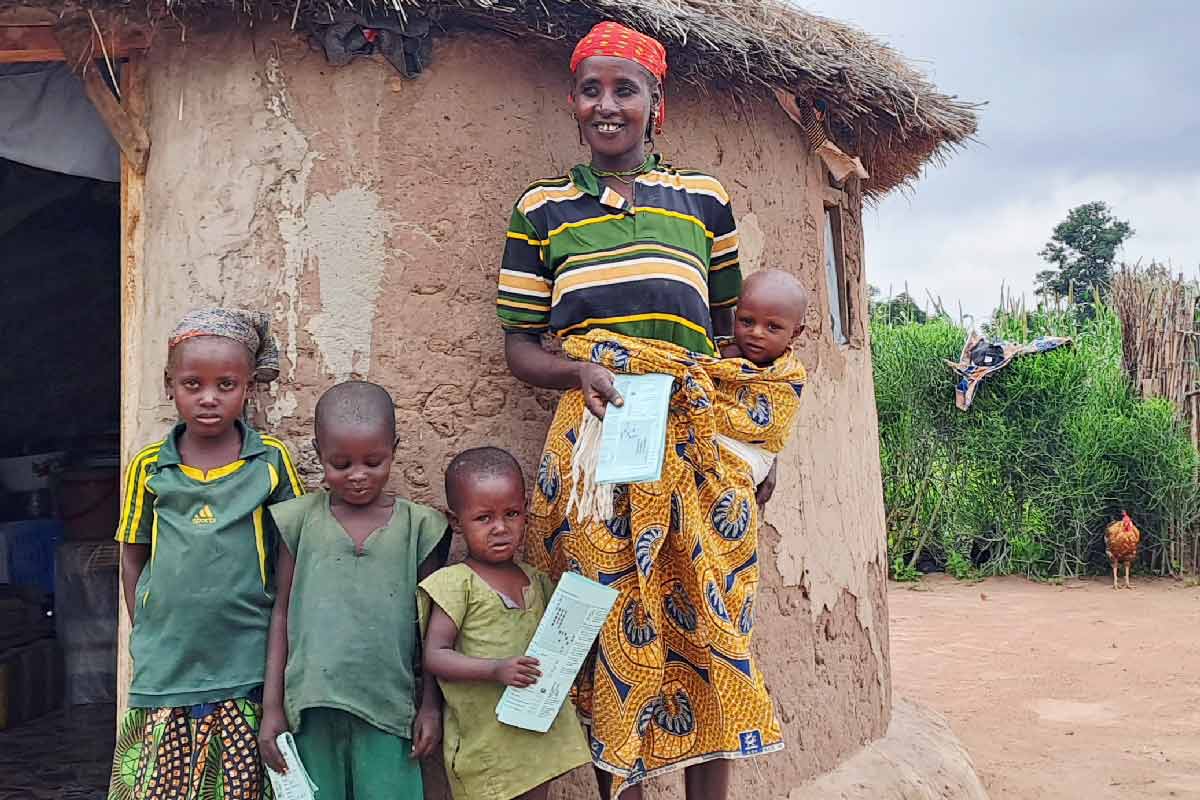
What had changed her mind, she explained, were the words of Amina Husseini, Rugan Bale’s respected women’s leader.
“Vaccines are medicine that prevent diseases, and they make children strong,” Husseini had said. “I give them to my own children because I know they protect, not harm.”
Hearing this from a neighbour she trusted was enough for Azumi to act. She began vaccinating her younger children and now speaks to other mothers, encouraging them to do the same.
“I’m happy CHAN comes here; we are often forgotten,” added the mother.
Rabi’s turning point
Husseini pointed the CHAN team to another mother, Rabi Saadi, who had never accepted vaccines for her three young children. Saadi’s fears were similar – she understood vaccination as a trigger for fevers and crying.
The CHAN team listened and acknowledged her concerns. They explained that such mild effects are temporary and far less harmful than the diseases vaccines prevent. They shared that they vaccinate their own children, showing they trusted the very same services they offered.
With Husseini’s encouragement, Saadi agreed for the first time to have her children vaccinated. She also promised to speak to other mothers about the benefits. An Adverse Events Following Immunisation (AEFI) kit, including paracetamol syrup, was provided to help her manage any fever that might follow.
Have you read?
Eight children, one afternoon
By the end of that afternoon, eight children in the compound had been vaccinated for the very first time. In a community where the answer had always been “no,” this was a breakthrough.
For CHAN, moments like this are proof that progress is possible even in places marked by insecurity, isolation, and long-standing mistrust. Change does not usually come in a single sweep. It grows through patience, listening, and building trust until one “yes” becomes another, and then another.
Looking ahead
In Rugan Bale, Azumi and Rabi now stand as voices for change. One began her journey before CHAN’s visit, the other on the very day the team arrived. Together, they are encouraging other mothers to protect their children.
CHAN will continue working with local leaders like Amina Husseini to strengthen these voices and ensure that no child in Plateau State is left unprotected. Every child vaccinated is a step toward a healthier, safer future. Sometimes that journey begins with a single conversation under the shade of a tree.
How is Gavi supporting CHAN?
Gavi’s humanitarian partnerships programme, also known as ZIP, funds partner organisations with specific expertise in navigating humanitarian crisis. The aim? To deliver all scheduled vaccine doses to children from birth to age five in communities where conflict impedes the access of government-provided health services.
CHAN, operating in troubled parts of northern Nigeria, is one such specialist organisation, and is operating as part of the IRC-led, ZIP-funded, REACH consortium.
As of July 2025, ZIP had provided more than 2.1 million children growing up in crisis zones with their very first vaccine, and 1 million children with their last recommended dose, leaving them fully immunised.
